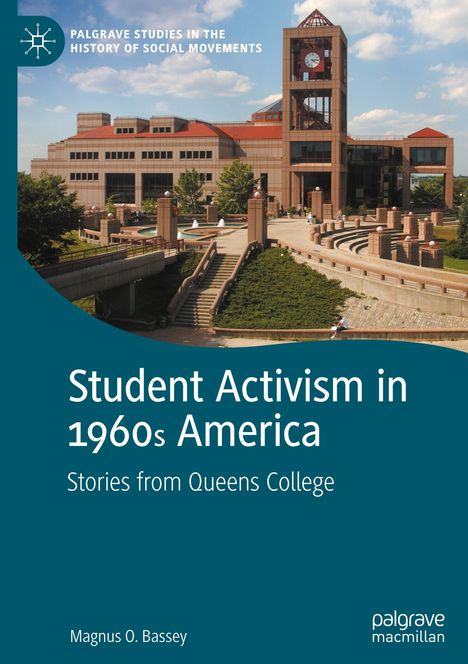Magnus O. Bassey: Student Activism in 1960s America, Gebunden
Student Activism in 1960s America
- Stories from Queens College
Lassen Sie sich über unseren eCourier benachrichtigen, falls das Produkt bestellt werden kann.
- Verlag:
- Palgrave Macmillan, 08/2024
- Einband:
- Gebunden, HC runder Rücken kaschiert
- Sprache:
- Englisch
- ISBN-13:
- 9783031547935
- Umfang:
- 304 Seiten
- Gewicht:
- 508 g
- Maße:
- 216 x 153 mm
- Stärke:
- 21 mm
- Erscheinungstermin:
- 24.8.2024
- Hinweis
-
Achtung: Artikel ist nicht in deutscher Sprache!
Weitere Ausgaben von Student Activism in 1960s America |
Preis |
|---|---|
| Buch, Kartoniert / Broschiert, Englisch | EUR 136,55* |
Ähnliche Artikel
Klappentext
This book sheds light on the untold stories of individual student activists at Queens College, New York City, during the 1960s. Against the backdrop of the ongoing Vietnam War and the assassination of President John F. Kennedy, some Americans began to lose faith in their government. Based on injustices that students saw in their campuses, in the country, and in the world at large, they began to question their political leaders. Students organized their discontents over three major issues: civil rights, free speech, and anti-war sentiments. Their protests involved direct actions such as sit-ins, marches, picketing, and boycotts. At Queens College (QC), as the students moved away from the repressive McCarthy era of the 1950s, they began to confront and challenge those in power at the college in the 1960s. The defining characteristic of this break from the past was a student strike in 1961 in objection to the ban of controversial speakers who had been invited to campus by student clubs. The student strike of 1961 gave the activists among them a direct and immediate way to fight power on campus and to fight racism and discrimination. The author argues that student movements cannot be attributed to a single explanation, and therefore, he focuses on individual historical contexts, presenting first-person narratives from the actual participants, and tells their stories in their own voices, from their own records, and from the documents they left behind. The book identifies the QC student activists of the 1960s, exploring how and why they became activists; their activities; their achievement as activists; and what motivated them to think that they could make history themselves by confronting racism. It provides an intimate look at the students¿ lives and their social justice journey, beginning at Queens College and as they moved into their careers.





